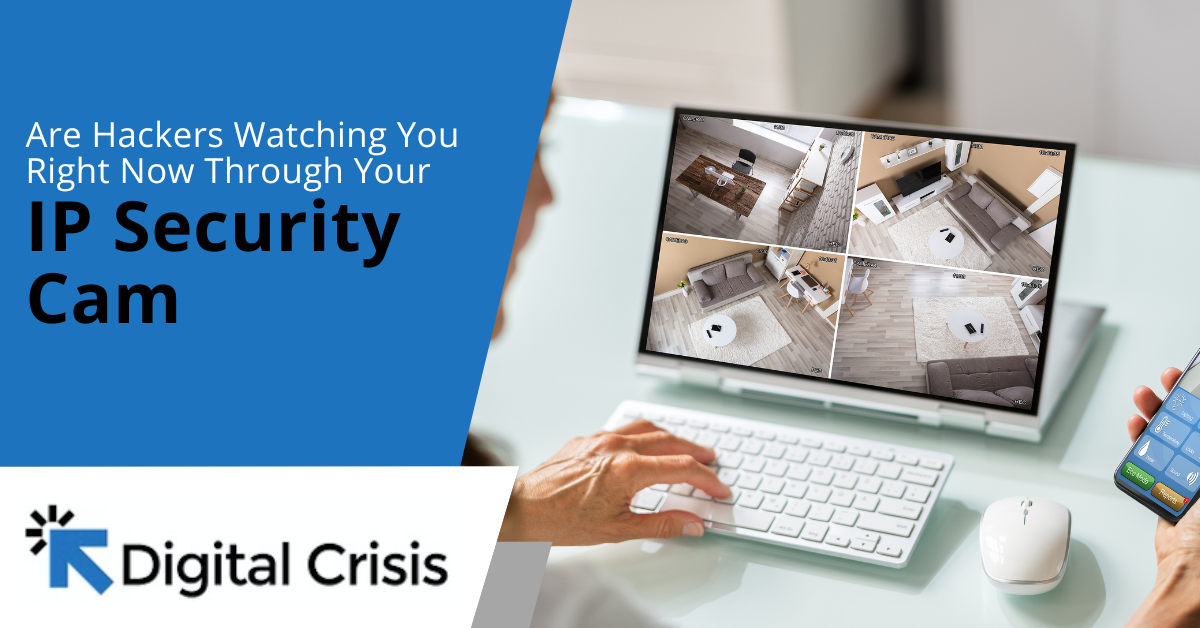
IP security cameras are great security monitoring tools because they help oversee your property, family, business activities, and even intruders. These cloud-based security cameras provide live videos and audio feeds that can be accessed in-house or remotely using an internet browser.
Installing an IP security camera in your home or office won't necessarily bring a wave of hackers to your IP security camera or Wi-Fi networks - but there have been some disturbing cases of security cameras being hacked.
Although IP security cameras have features that enhance your security system, they still lack some fundamental security features, making them vulnerable to hacking and digital snooping. As a result, it is possible that your IP security camera may have been breached, and hackers are watching you, your activities, and everyone within the scope of the security camera right now.
One question commonly asked is, how will I know if my IP security camera is hacked and I'm being watched? Here are ways to tell if such a security camera is hacked.
Once you know what to look for, you will be able to take immediate action. Here are signs that show your IP security camera may have been hacked.
This is one of the most obvious ways to tell if your IP security camera has experienced a security compromise and you are being watched. Some hackers love to make their presence known by speaking through the camera or making random sounds or noises.
Some cameras are strategically positioned to watch over a particular area, while some can cover/pan a 360-degree area. This panning feature is best for seeing more of a room or area; however, the panning action is initiated by the user through an app.
Therefore, another obvious sign that the IP security camera is being hacked is the repositioning or abnormal rotating of the camera without using the app. If you notice the camera abnormally tilting or panning on its own or following you around, a hacker may be controlling it.
Many IP security cameras have small LED lights that show when the camera is in use. If the camera light is turned on when it shouldn't be because you didn't turn it on, this could be a sign that the system has been hacked.
Also, some cameras' lights blink when it's in use. If you are not operating the security camera, but the light starts blinking, this is a sign that someone is accessing or trying to gain access to the camera.
When you try accessing the security camera app on your device, and the app suddenly requests a password, especially when it didn't reset or uninstall, your camera may have been hacked.
Every IP security camera has a login history section where you can check or monitor the IP address or user that has accessed the camera and at what time, day, and date. This helps shed light on who may be accessing your camera.
If you notice frequent and strange login attempts in the login history, or if the IP address is not one you are familiar with, then the security camera is successfully hacked.
Another way to tell if your IP security camera is hacked is to check your security network's data consumption and flow. If such a camera is transferring or using an enormous amount of data, especially when you are not accessing or using it, your camera may be compromised. To detect this, pay close attention to sudden spikes in the security network system.
Before buying an IP security camera, carry out extensive research and buy from reputable brands. If the camera does not have the relevant security encryption component, it can be hacked despite using a strong password.
Many security cameras come with a default username and password, and most people either forget to change it or use easy-to-remember passwords. According to a study, 51% of people use the same passwords for their personal and work accounts. Due to this, the possibility of a system getting hacked is much higher.
As a result, use a strong and secure password that is difficult for anyone to guess. Use a password with letters (a mix of upper and lower-case letters), symbols, and other characters. Also, it is essential to change your password frequently.
Multi-factor authentication provides your camera security network with double protection. With an MFA, whenever you log in, you get a message or an email asking you to validate the account.
Ensure the number of devices used for accessing your IP security camera is limited to one or two. Also, use a VPN to help regulate the devices used for accessing the security camera.
Antivirus protects the security camera against malware and viruses, while firewalls protect the security camera from hackers. Therefore, get an antivirus and firewall software to protect your camera.
Ensuring your camera's firmware is up to date is an effective way to prevent it from being hacked. Continually check for fixes, improvements, or upgrades of your IP security camera firmware.
Don't wait until you are hacked to take action. Be proactive.
At Digital Crisis, we offer next-level solutions to cyber security issues and other features that will keep your business safe.
Contact us today to schedule a consultation. Call 713-965-7200 or reach us online.